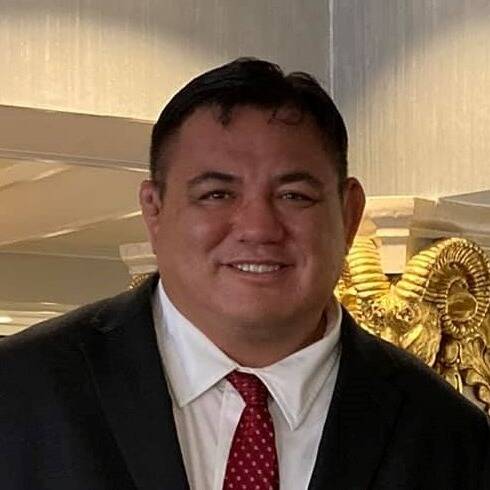A Waimea man is suing Hawaii County in federal court, saying its requirement he sign a waiver of liability for a background check as part of the concealed-carry firearms permit application violates his constitutional right to privacy.
Attorneys Richard Holcomb of Honolulu and Alan Beck of San Diego filed the suit on behalf of James Grell on Aug. 4 in U.S. District Court in Honolulu.
ADVERTISING
Grell, a 51-year-old accountant, twice submitted an application to the Hawaii Police Department, on April 17 and May 5, for a permit to carry a Sig Sauer P365 9 mm semi-automatic pistol. The application included a form signed by a National Rifle Association certified firearm instructor saying Grell passed a firearms proficiency test with the handgun on March 5.
The application also was submitted twice with a cover letter explaining Grell didn’t agree to the waiver form, so he didn’t sign it or have it notarized.
Twice, the police department declined to process Grell’s application, citing in a certified letter Grell’s refusal to complete and notarize that waiver of liability as its reason.
“Your application is being sent back until you are able to complete the required documents checklist,” said the letter, signed by Acting Lt. Nelson Acob of the Records and Identification Section on behalf of Chief Benjamin Moszkowicz.
Police chiefs in Hawaii have sole authority to issue firearm-carry permits, but historically have approved only a handful of applications. That changed after the Supreme Court’s ruling in June 2022 in the case of New York State Rifle &Pistol Assn. vs. Bruen, which lifted the majority of state restrictions on the public carrying of firearms.
“This waiver is unique to the Big Island,” Beck, an attorney who largely specializes in Second Amendment issues, told the Tribune-Herald last week. “This is a brand-new issue. I can’t say that anyplace else in the country is making anyone waive their attorney-client privilege to get a permit.
“New Jersey, New York, Maryland … all those places have restrictive gun control, and they don’t require anything like this.”
The waiver form specifies the applicant for a firearm-carry permit releases from liability and promises “to hold harmless from any liability under any and all possible causes of legal action” anyone who furnishes “any information or opinions regarding applicant’s background, family, personal habits or reputation.”
The form also requires the applicant to waive “any and all legal privileges I may have to maintain such information as confidential, included but not limited to the following privileges: attorney-client, clergyman-penitent, husband-wife, physician-patient, psychologist-client, creditor-customer, and accountant-client.”
In addition, by signing and the form, an applicant agrees to waive any and all claims against the Hawaii Police Department in connection with the concealed-carry application process.
“Obviously, they want to go into a person’s life and try to find any rationale to not issue them a concealed-carry permit. This is extremely intrusive into a person’s life,” Beck said.
Grell, who was one of the plaintiffs in the recent 9th Circuit Court of Appeals decision in Teter vs. Connors that overruled the state’s ban on butterfly knives, argues the waiver requirement violates his rights under the 14th Amendment to the U.S. Constitution, which says “no state shall make or enforce any law which shall abridge the privileges or immunities of citizens of the United States … nor deny to any person within its jurisdiction the equal protection of the laws.”
“Mr. Grell does not wish to waive his attorney-client privilege as it applies to that case,” the suit states, and adds that Grell “does not wish to waive his doctor-patient privilege as to matters unrelated to (his) fitness to carry a firearm.”
The filing also claims the waiver is a burden to the Second Amendment right of a law-abiding citizen to carry a firearm.
The suit seeks injunctive relief declaring the waiver unconstitutional, that the county pay for attorney fees and the cost of the lawsuit, and “nominal damages.”
“He wants the policy to go away. He wants the waiver to be gotten rid of. That’s all that he’s asking for. He’s asking the court to grant an injunction saying the waiver is unconstitutional. That’s all he’s asking,” said Beck.
“The attorney-client privilege is the bedrock of our judicial system. You have a fundamental right to your privacy and you have a fundamental right to the Second Amendment,” he said. “And the Supreme Court said long ago that the government should not make you trade one constitutional right for another.”
In an email, Assistant Corporation Counsel J Yoshimoto said, “Regarding the lawsuit filed by Mr. Grell, it is the practice of the county to not comment on ongoing litigation.”
A hearing on Grell’s request for a preliminary injunction is scheduled for 9 a.m. Nov. 3 in Honolulu before U.S. District Judge Jill Otake.
Email John Burnett at jburnett@hawaiitribune-herald.

